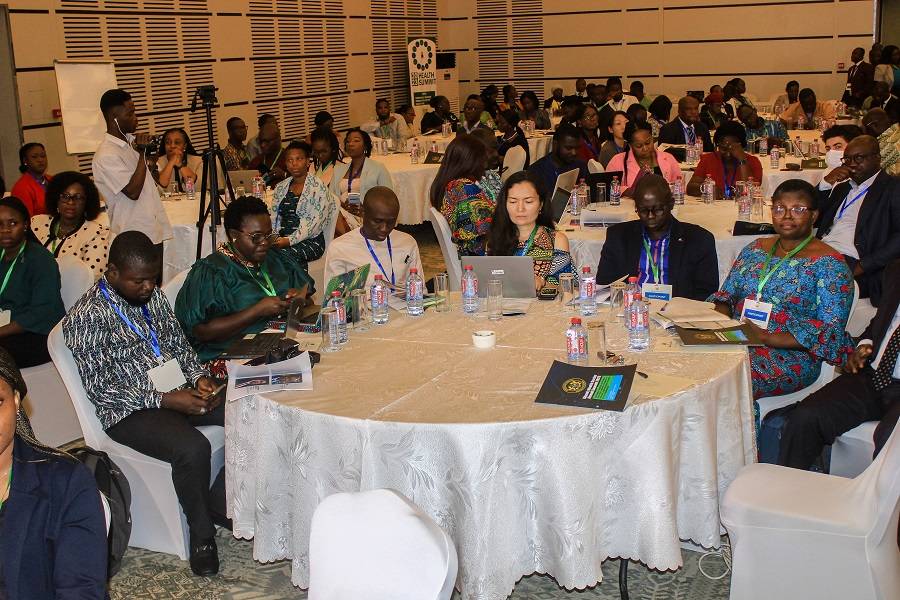The World Bank has asked the government to take advantage of recent grants aimed at restoring macroeconomic stability, to make bold decisions on the health sector.
The government has received a first tranche of $600 million of a $3 billion loan facility, from the International Monetary Fund (IMF), with an additional $250million expected at the end of the third quarter of this year.

It is also expecting financing support from the African Development Bank (AfBD) and other development partners.
Consequently, the government is seeking to build a more resilient economy able to withstand future shocks under its three-year post COVID-19 Programme for Economic Growth (PC-PEG).
The Country Director for Ghana, Liberia and Sierra Leone, Pierre Laporte, said despite Ghana’s exemplary leadership on health within the sub-region, significant gaps exist in areas of service delivery, access to basic services, climate health vulnerabilities and pandemic preparedness.
“I hope that the restoration of the Ghana economy to the pre-crisis level will provide the government with the requisite fiscal space to invest in health,” he said.
Mr Laporte made the call at the opening of this year’s National Health Summit in Accra, yesterday, on the theme; “Sustainable financing for primary healthcare towards attainment of universal health coverage in Ghana; Role of stakeholders.”
The three-day annual meeting, brings together key health stakeholders, to review progress of the health sector, discuss prevailing challenges and how to improve the status quo, to attain Universal Health Coverage (UHC) and other global health targets.
Mr Laporte said innovative and sustainable financing were critical to building a resilient primary healthcare system.
He said: “The approval of the $150 million International Development Association (IDA) and the $31 million global financing facility grant for the primary health care improvement programme is going to help government implement the primary healthcare reforms called the Network of Practice,”
Pledging the World Bank’s continued commitment to government development goals, the Country Director called on development partners to “join hands to ensure that the fiduciary capacity of the Ministry and its agencies are strengthened to ensure transparent and efficient use of the health sector resources.”
The Minister of Health, Kwaku Agyeman-Manu, indicated that despite economic challenges, the sector remained relatively “stable” in the review year resulting in some successes.
He pointed out that institutional maternal mortality reduced from 119.6 in 2021 to 102.6 in 2022 although Greater Accra, Ashanti and Eastern regions had high maternal mortality ratios.
“Institutional still births, neonatal, infant and under-five mortalities have also reduced marginally. Family planning (FP) acceptor rates also saw an increase from 33.8 per cent in 2021 to 36.1 per cent in 2022 with Ahafo Region recording the highest FP acceptor rate,” he noted.
“All-cause mortality rates also declined from 21.7 per cent to 19 per cent in 2022 and although these modest achievements are quite commendable, we really need to do more to continue to justify for more funds,” according to the minister.
Mr Agyeman-Manu made the case for investment into primary health care as an essential foundation for UHC, urging improved domestic resource mobilisation to deliver on expected outcomes.
The National Chairman of the Ghana Coalition of NGOs in health, Bright Amissah-Nyarko, called for the re-programming of the COVID-19 levy to support other health sector demands
BY ABIGAIL ANNOH